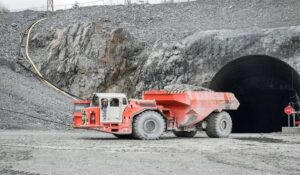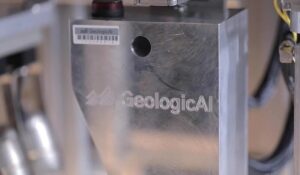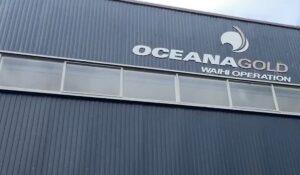The world has changed massively since Bruce Harvey was a practising “red-blooded” exploration geologist in the 1990s. And yet, he says, first principles thinking remains vital to mining’s ability to navigate an increasingly complex world and sustain its pursuit of the “holy grail of business management”.
Rocks – geology – naturally ruled the world of an exploration geo when Harvey started in mining. However, by the mid-1990s he found he was spending “over half my time negotiating or attempting to negotiate exploration access”.
“I realised it was the key determining step in minerals exploration and development success,” Harvey told the 2025 AusIMM Underground Operators Conference in Adelaide, South Australia, in a keynote address. So he went and got an MBA. For more than a decade he has been waist-deep in mineral project development and approvals with the social performance advisory firm he founded, resolution88.
“Environmental, social and governance considerations have become critical to the minerals industry,” AMC Consultants CEO Andrew Hall said at the conference. Harvey agreed with Hall that the mining professionals in the room had crucial roles to play in delivering real ESG outcomes in and for the industry.
“Operational ESG is where the rubber hits the road,” he said.
“Most of the stuff you read in the newspaper that’s tagged ESG is not operational ESG, [which is] what we do.
“It is used as a proxy term for singular popularist issues such as net zero. These attempts at virtue signalling around issues of predetermined importance can lead to businesses seriously misjudging the risks that are most important to them in their operating context.
“The practical management of material ESG-related risks at projects and operations … can impair and constrain, or indeed enable, real performance. Of course, it’s mining engineers who can effectively operationalise material ESG factors in a life-of-mine context that have real impacts and consequences. Many of these are embedded in project designs, consents and licensing, and many of these impacts have fat and long tails.
“Geologists and mining engineers understand that each mineral deposit is unique and that mine development requires orebody-specific optimisation. This focusing principle is equally true for ESG-related factors.
“A first principles approach rather than a regulatory or standings driven approach should be adopted.”
In a popularist world of a different kind at the moment, Harvey said business and industry was now less enamoured with ESG “banner waving”.
“However, it fundamentally won’t make any difference to running a better business, as I’ve said,” he said.
“Operational ESG is about taking control of your business, demonstrating that you’re reducing variance, that you’re running a system under control and that you have a good handle on the risks, and that you’re managing them.
“So anyone who thinks that they’re going to get a free ride because [US president] Donald Trump is going to wave all that through or anything else is very much missing the point. This is not about getting a free kick from the regulators. This is about running a good business.”
Having highlighted the fact that only two of the world’s 40 largest undeveloped copper deposits had become mines, while the rest remained mired – some for decades – in government approval processes, Harvey was asked if miners could trust that doing the required work, with the appropriate scientific and intellectual rigour, could still produce predictable results.
“Doing operational ESG well is never going to guarantee that you can avoid political intervention,” he said.
“I won’t mention the name but … there’s a case running at the moment in New South Wales around a gold mine involving a bee and it’s held up because of political intervention. My prediction is that it’ll be delayed 12 or 18 months because from what I can understand they’ve done their work. It’s pretty fundamental. It’s defensible what they’ve done and they will ultimately get through that political nightmare that they are in.
“You will never avoid that kind of syndrome. But by crikey you can be running a tighter ship and be better prepared for it, or you can just become a possum in the headlights.
“If you are running a tight ship you are in a much better position to eventually see your way clear through the kind of political intervention that might come about. So irrespective of the political climate I’m actually just advising people to run a better business.
“You run a better business [and] you reduce costs in the process. You’re bringing systems under control.
“What’s not commonly appreciated is the intrinsic business benefit gained through an overall reduction in outcome variation that comes from good operational ESG.
“The holy grail of business management anywhere, in any sector, is reduced variation. The greatest source of variation for any minerals business lies in its external, unknowable environment, so managing ESG related matters well is a way of achieving more control and less variance in business interactions with the outside world.”









